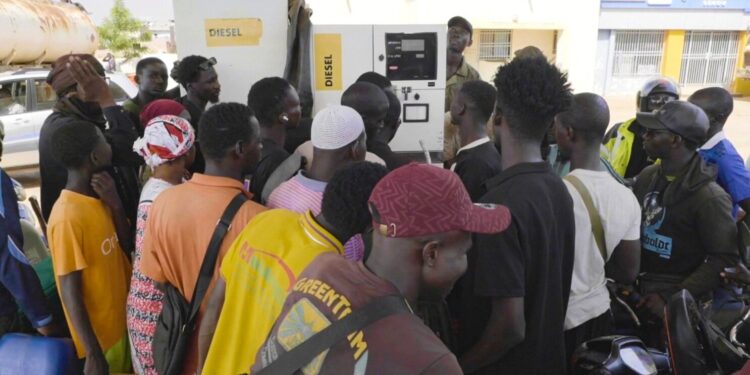Mali’s capital, Bamako, is experiencing a severe fuel shortage due to a blockade imposed by al-Qaeda-linked insurgents from Jama’at Nusrat al-Islam wal-Muslimin (JNIM).
The militants have been attacking fuel tankers, disrupting supply routes and causing long queues at gas stations. Many stations have closed or only supply diesel, exacerbating the crisis.
The blockade, declared in early September, has led to fuel shortages, with some stations in Bamako reopening after fuel tankers arrived from neighboring Ivory Coast.
The Malian government has convened a disaster management committee to secure fuel supplies, but analysts warn that the blockade poses significant risks to the country’s fragile economy.
The shortage has affected daily life, with motorcyclists and car owners struggling to find fuel.
Some have resorted to pushing their motorcycles for miles in search of fuel. The crisis has also impacted businesses, with vendors reporting losses due to spoiled goods and power outages.
The JNIM’s blockade aims to pressure the military-led government, which took power in 2020 and 2021, promising to improve security.
Mali’s economy is heavily reliant on fuel imports, and the blockade has led to increased prices and scarcity.
The country’s military government is working to restore order and ensure the supply of essential goods.
However, the situation remains precarious, with the potential for further disruptions and instability.









